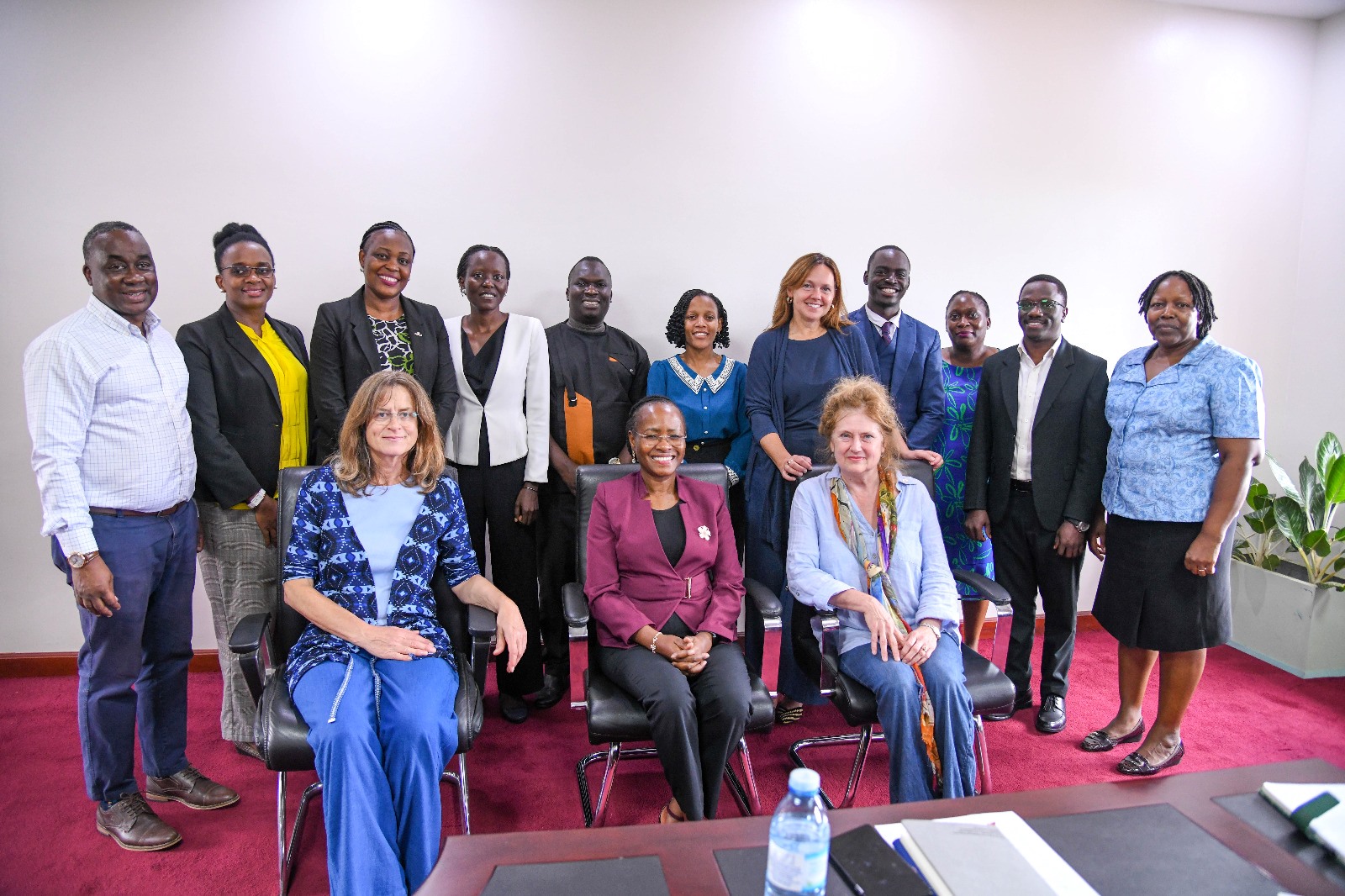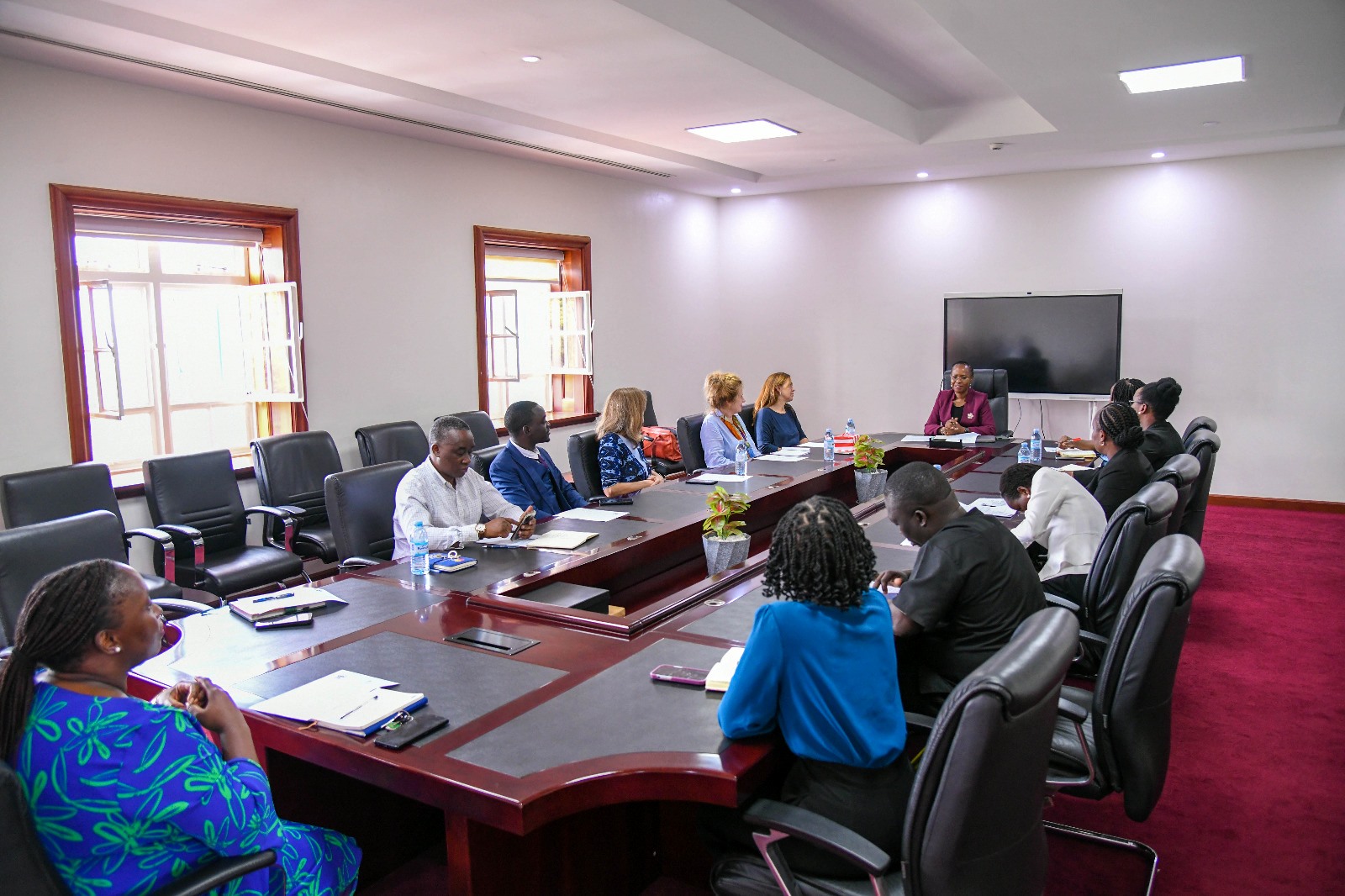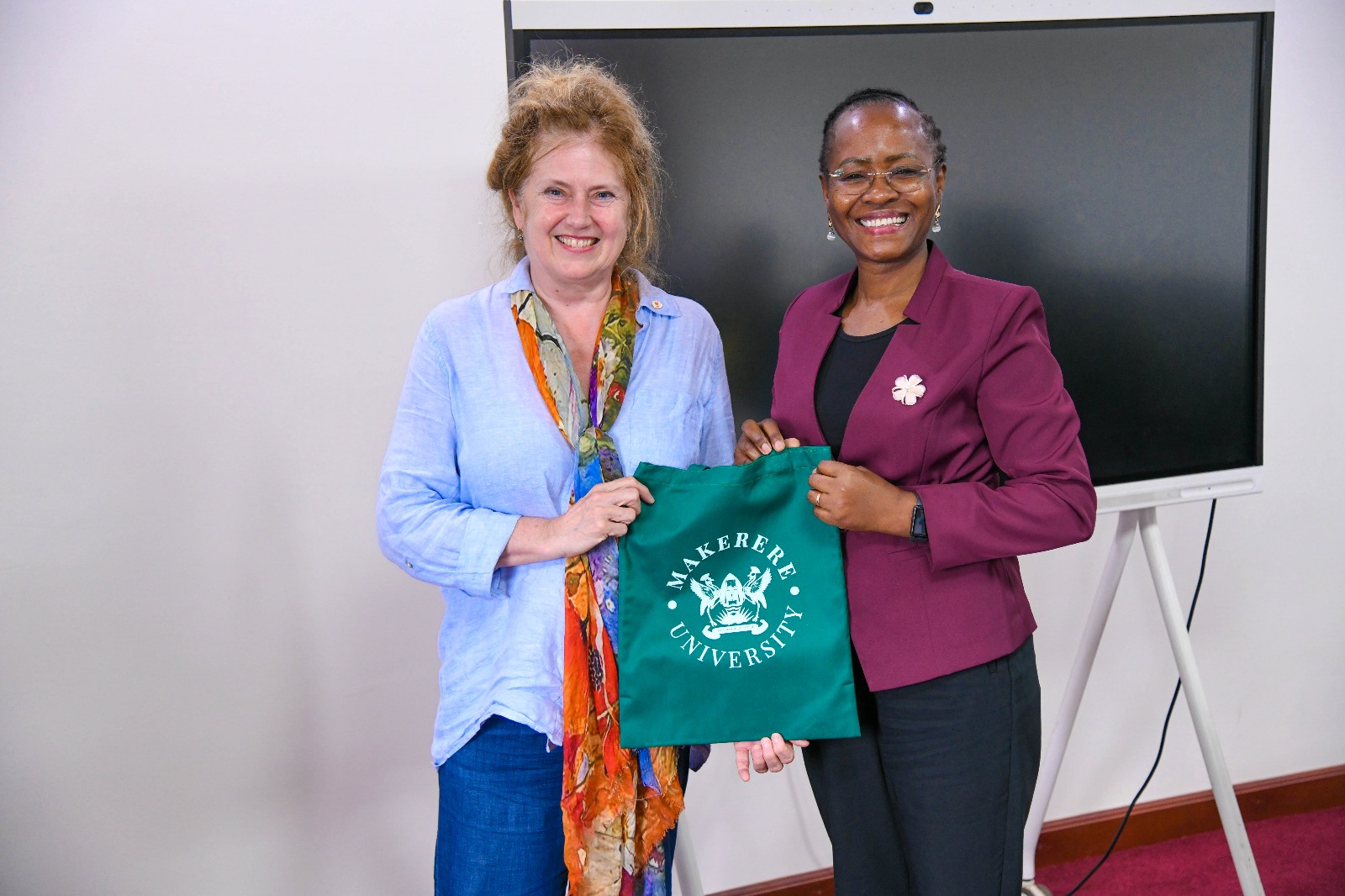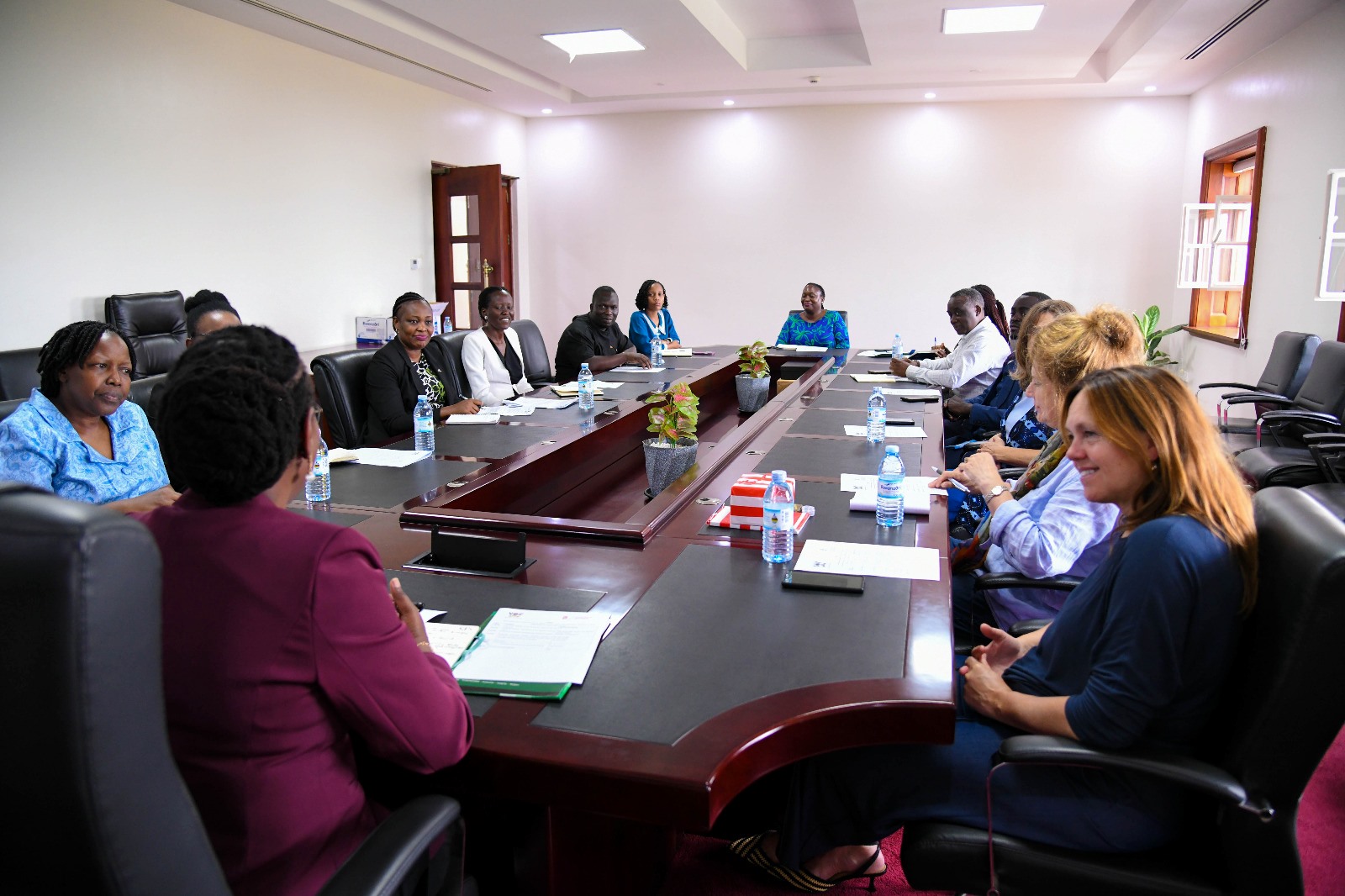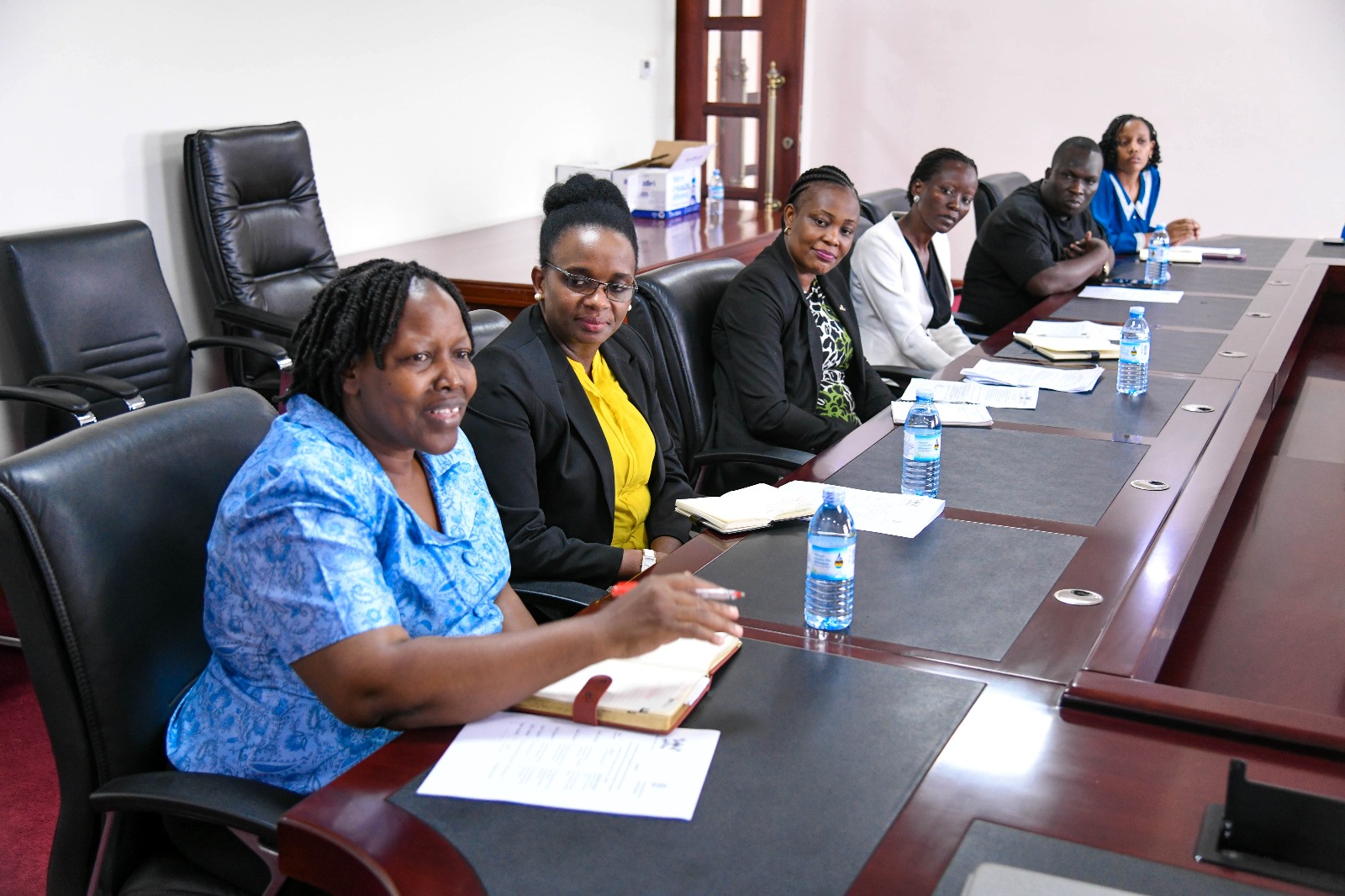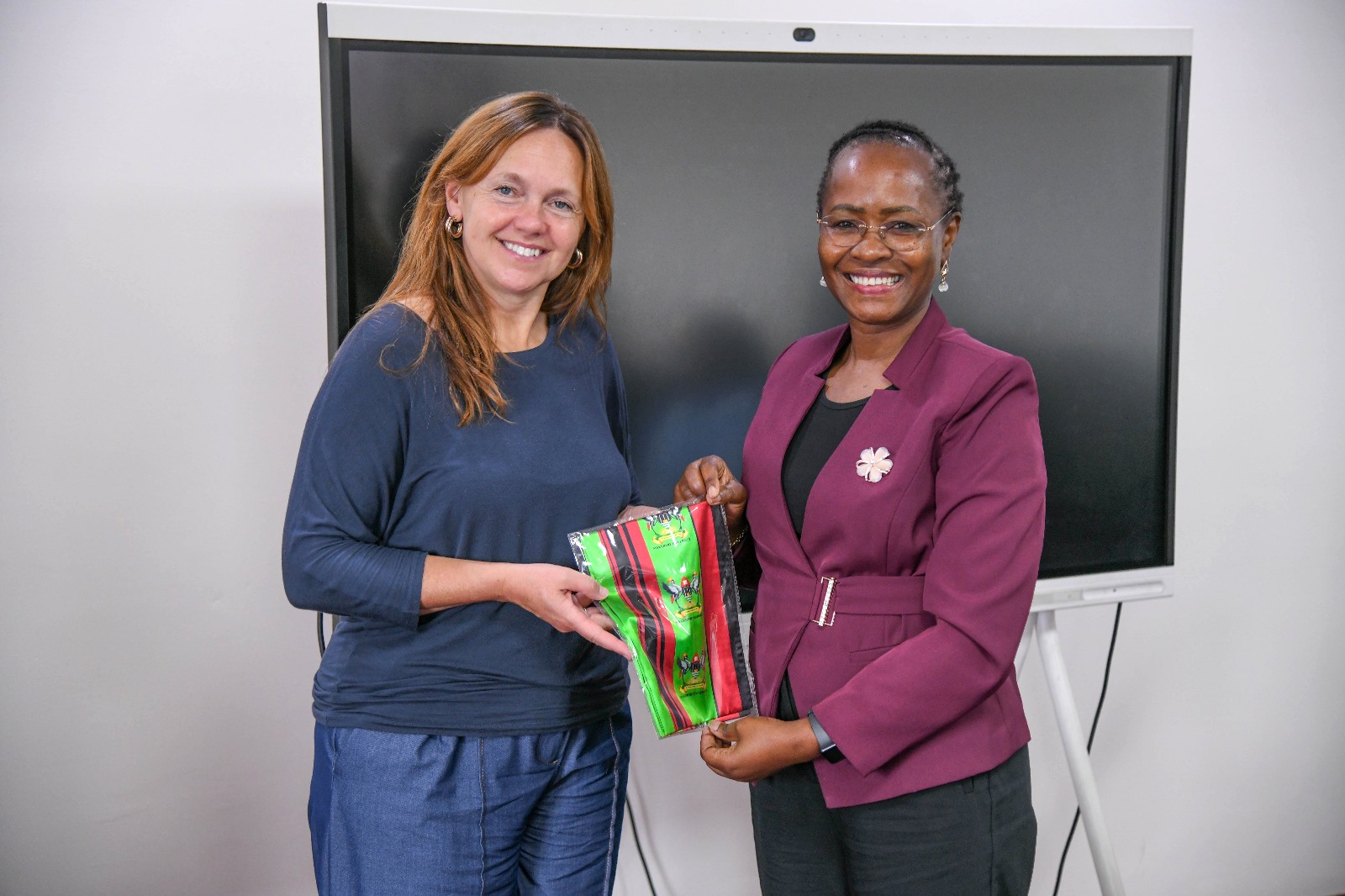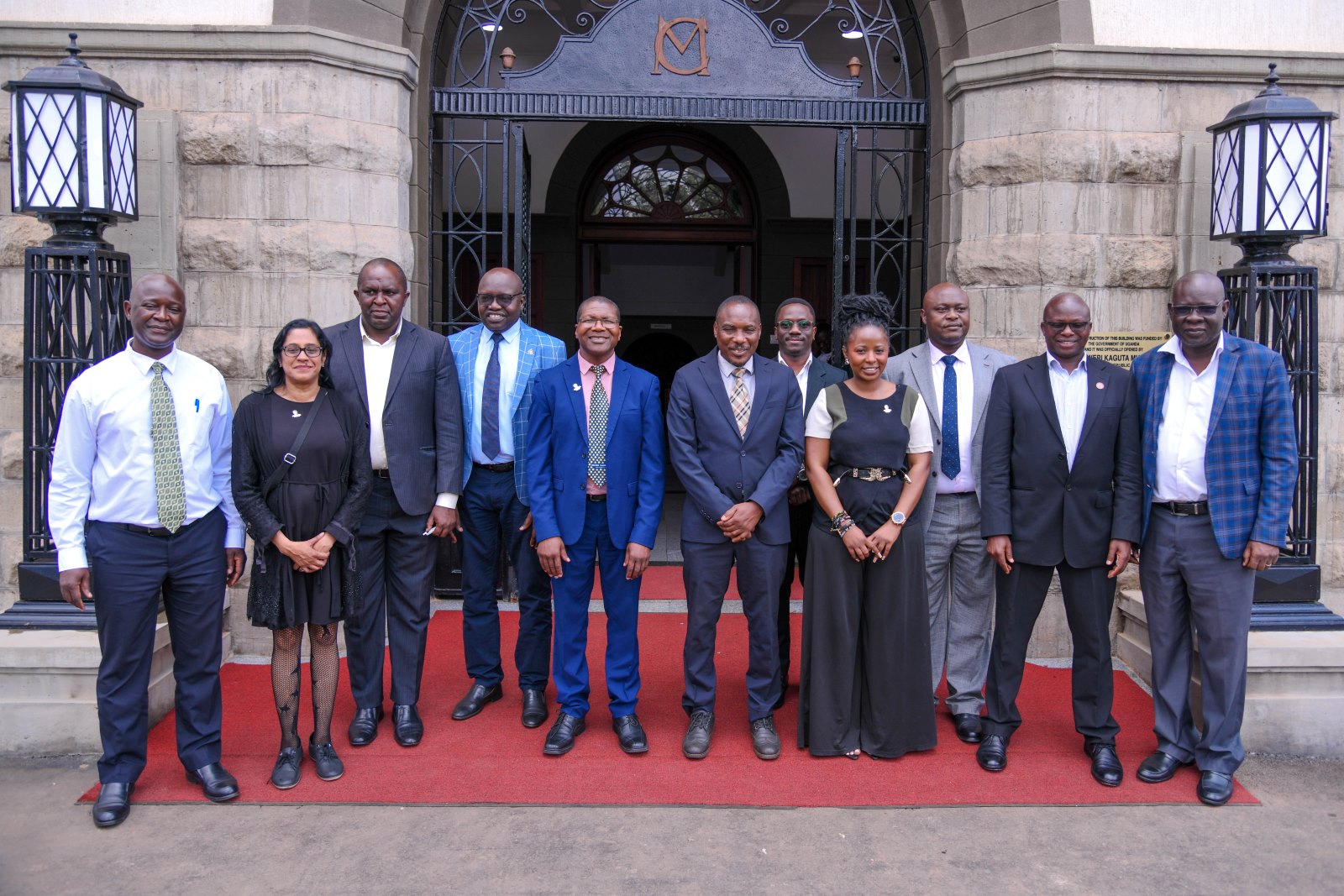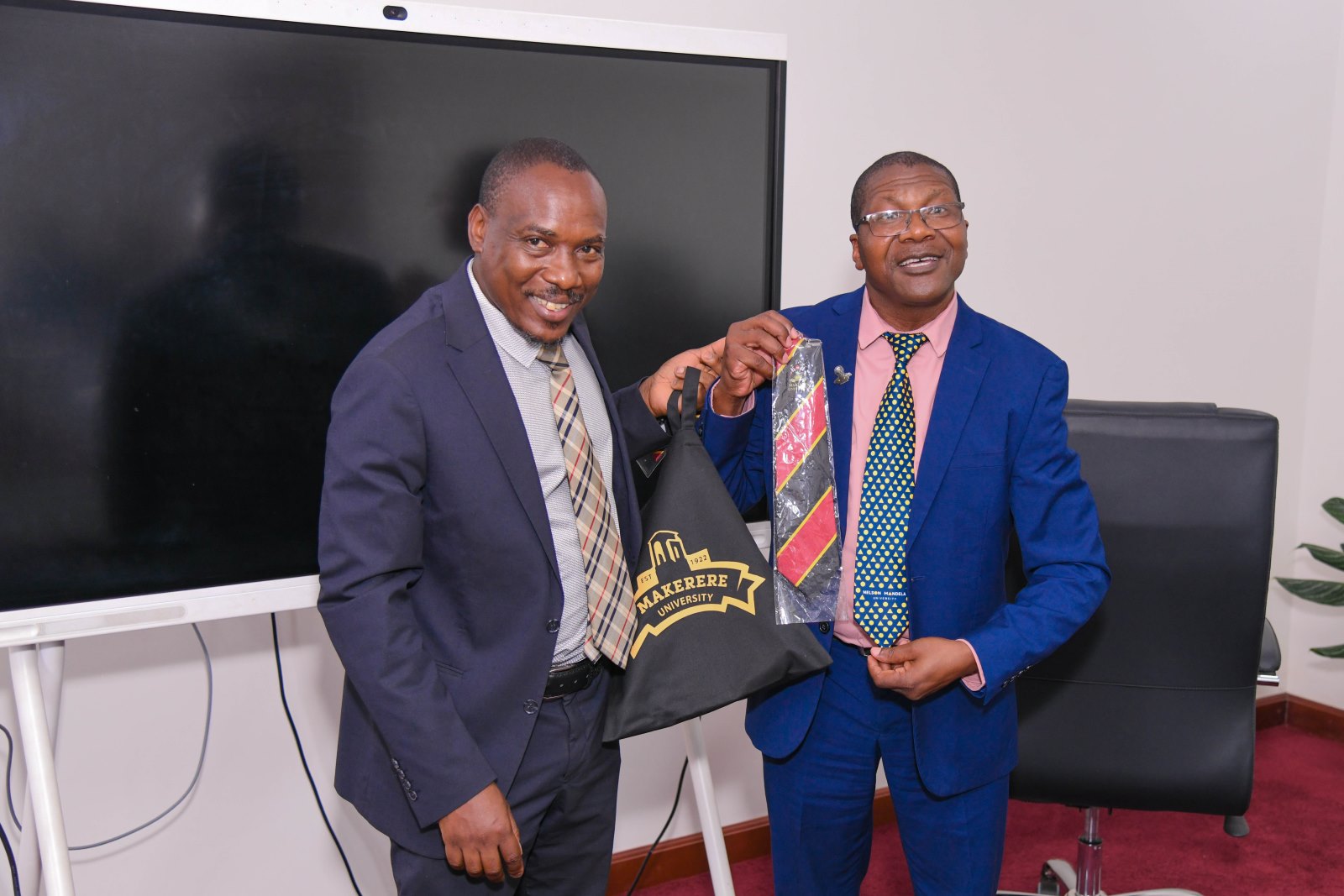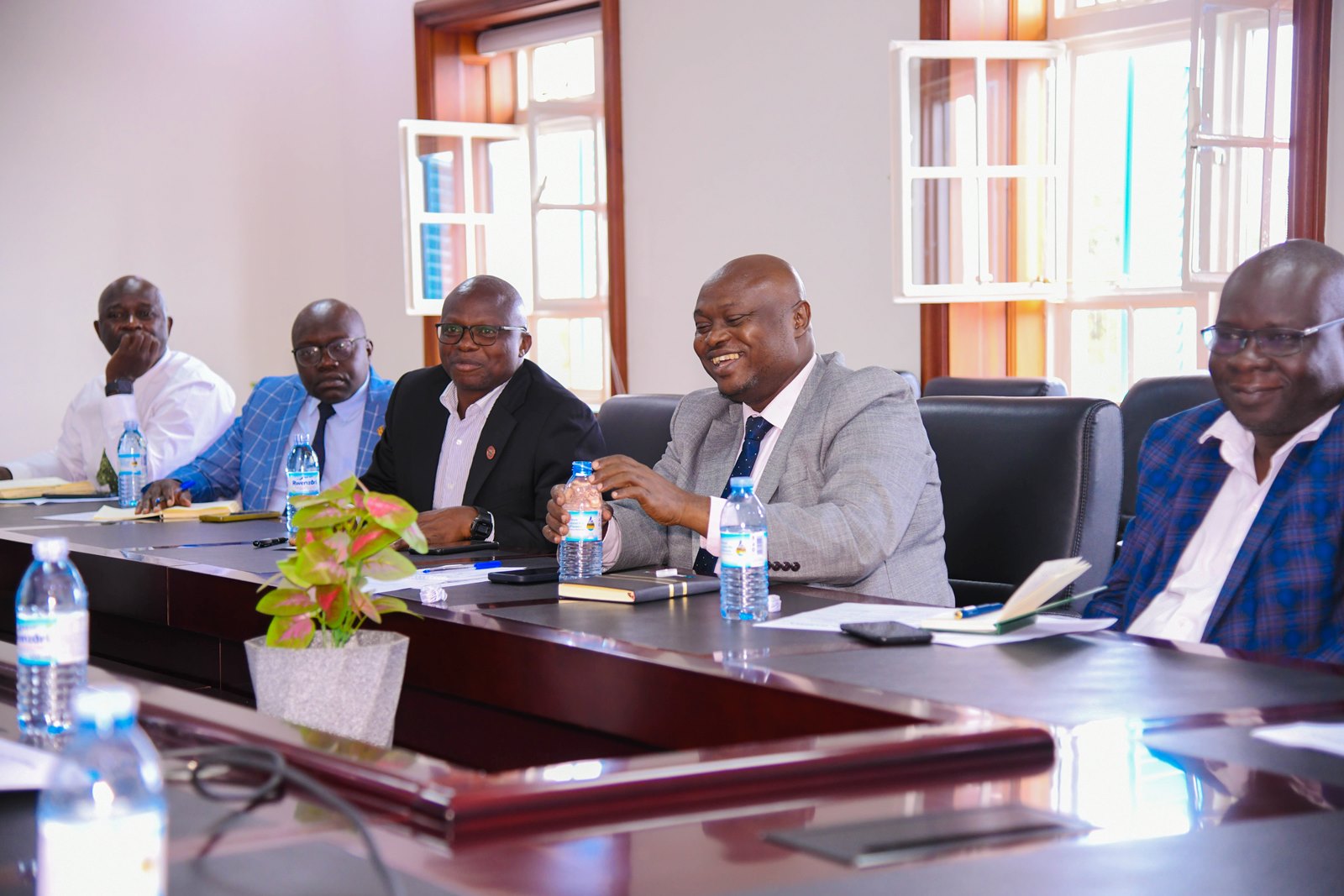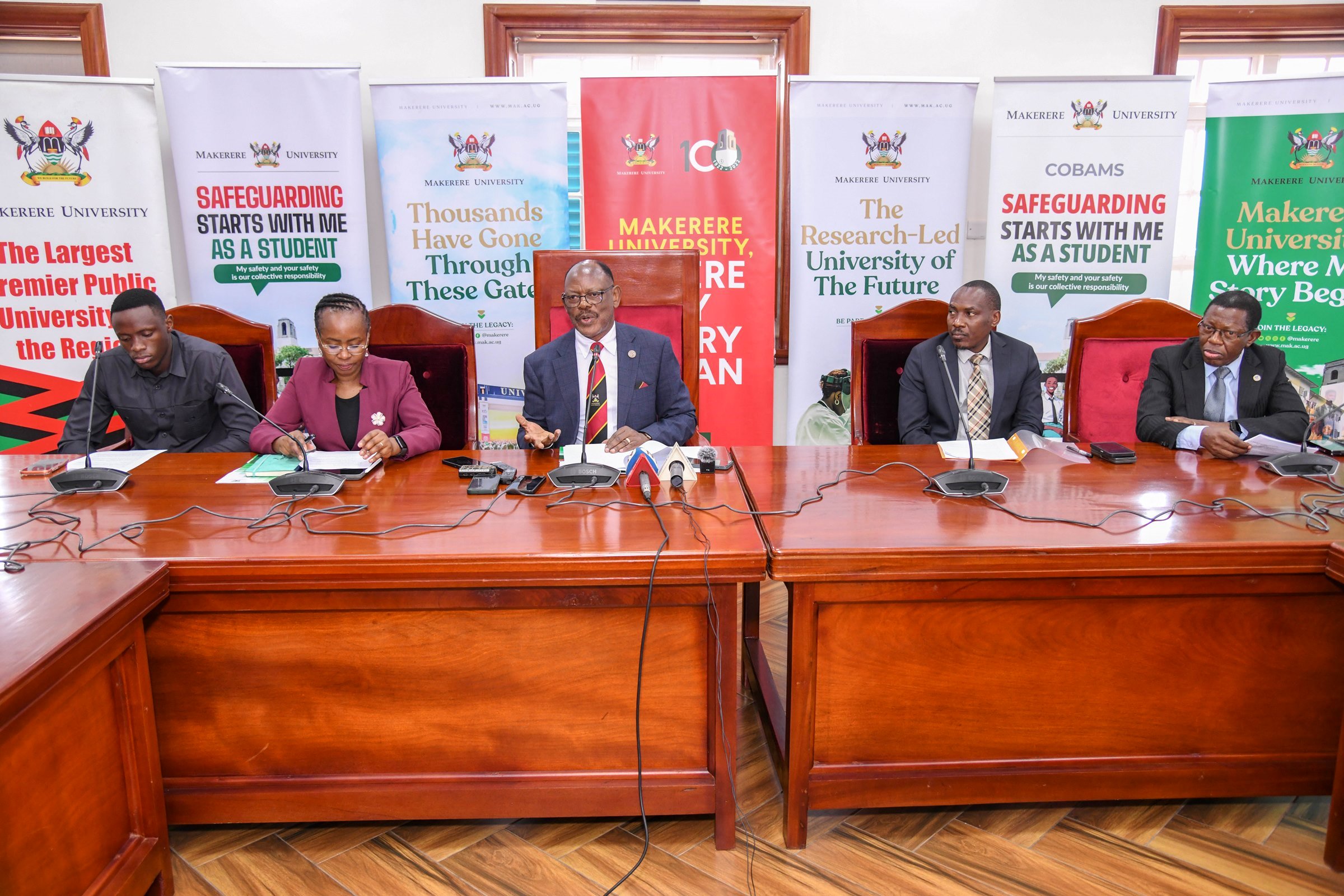The Vice Chancellor, Prof. Barnabas Nawangwe on Tuesday 7th October, 2025 held a press conference to update members of the Media on the; New Deputy Vice Chancellor (Academic Affairs), Acquisition of Land in Kyankwanzi, Acquisition of 3 buses from Kiira Motors, Anti-Tick vaccine, Makerere Innovation Hub upgrade, Promotion of Student Freedoms and Responsible Leadership, Student Allowances, and Staff Hires and Exits.
The event held in the Council Room, Main Building, was attended by the DVC AA-Prof. Sarah Ssali, Ag. DVC F&A-Prof. Winston Tumps Ireeta, Academic Registrar-Prof. Buyinza Mukadasi, Dean of Students-Dr. Winifred Kabumbuli, Chief Human Resources Officer-Mr. Deus Tayari Mujuni, Deputy Chief – Public Relations-Ms. Eunice Rukundo, 91st Guild President-H.E. Ssentamu Churchill James and staff from the Offices of the Vice and Deputy Vice Chancellors.
The proceedings of the Press Conference follow below;
Vice Chancellors’ Press Statement
I welcome the media to this briefing. I would like to start by thanking our staff for their diligent and dedicated service to our University and Country.
In our teaching and learning, Makerere University seeks to respond to real-world problems within clearly defined industries and economic sectors. We align core university interventions with social economic transformation, by leveraging partnerships, technology, creative arts, sciences, research and innovations. We are committed to creating an enabling environment for both students and staff in order to produce graduates who are globally competitive, relevant and responsive to development needs.
To this end, we have made some strides that I would like to share, starting with the introduction of the new Deputy Vice Chancellor – Academic Affairs.
1. Introduction of the New Deputy Vice Chancellor (Academic Affairs)
Makerere University Chancellor Dr. Crispus Kiyonga on September 23rd 2025, appointed Professor Sarah Evelyn Nabwire Ssali as the Deputy Vice Chancellor in charge of Academic Affairs. Prof. Ssali has had a distinguished career at Makerere University spanning over two decades. Until her appointment, she was the Acting Director of the Institute of Gender and Development Studies (IGDS), having previously served as Dean of the School of Women and Gender Studies (2017–2024). She is also the Director of the Centre of Excellence in African Identities under the African Research Universities Alliance (ARUA). An accomplished scholar, Prof. Ssali is a Professor of Gender and Development Studies and a prolific researcher. Beyond academia, she has contributed significantly to university governance, and also played a leading role in curriculum reviews and policy reforms.
I warmly congratulate Prof. Sarah Ssali on her appointment and look forward to her leadership in steering academic affairs to greater heights.
2. Acquisition of Land in Kyankwanzi Land
The University is delighted to report that, on September 26th, 2025, Makerere University officially received one square mile (approximately 640 acres) of land from the Government of Uganda. This land, located in Kyankwanzi District, has been earmarked for the establishment of a Makerere University Agro-Demonstration and Training Facility.
This facility will serve as a living laboratory for practical agricultural training, research, and community engagement. It will host demonstration farms, improved livestock breeds, and innovative technologies designed to transform subsistence agriculture into a productive, market-oriented enterprise. Through this initiative, Makerere will train farmers and extension workers in modern farming practices, sustainable land use, pest and disease control, climate-smart agriculture, and agribusiness management.
The Kyankwanzi project aligns with Makerere University’s broader mission to generate and disseminate knowledge that directly impacts communities and supports Uganda’s socio-economic transformation.
3. Makerere Acquires 3 buses from Kiira Motors
I am pleased to announce that on September 27th, 2025, we strengthened our partnership with Kiira Motors Corporation through the acquisition of three modern buses. Of these, two are diesel-powered while the third is an electric bus, specifically brought to ease mobility of students and staff with special needs across campus.
This initiative speaks directly to our core values of inclusivity, equity, and care for all members of the university community. By ensuring that every student and staff can fully participate in academic life, Makerere continues to create a learning environment where everyone can thrive.
Our partnership with Kiira Motors Corporation reflects Makerere’s support for Uganda’s homegrown innovation ecosystem. That Kiira Motors was founded on research from within our own College of Engineering, Design, Art and Technology (CEDAT), is a demonstration of how university knowledge can be translated into practical solutions that serve society.
We extend our appreciation to the management and team at Kiira Motors for their generous contribution and continued collaboration. Together, we are not only advancing sustainable transport and green technology, but also reaffirming our shared vision of a modern, inclusive, and innovation-driven Uganda.
4. RESEARCH AND INNOVATION UPDATES
i. Anti- Tick vaccine
The College of Veterinary Medicine, Animal Resources and Biosecurity (COVAB) has successfully completed the formulation of an anti-tick vaccine, marking a major milestone in Makerere University’s contribution to Uganda’s livestock sector. The vaccine, which has demonstrated an efficacy rate of 86%, is expected to reduce calf mortality by 14% and significantly improve productivity across the livestock value chain. Uganda’s livestock industry currently contributes 19.4% to the national GDP, valued at approximately USD 17.09 billion.
Once fully developed and approved, the anti-tick vaccine is projected to reduce product losses in milk and meat by 11% and 29% respectively, and cut down on acaricide importation (An acaricide is a chemical substance used to kill ticks and mites). The vaccine is now awaiting clinical trials and regulatory approval from the relevant drug authorities before commercialization.
In 2022, we established an Innovation Hub dubbed the Unipod, which in 2024 got a grant from UNDP under the Timbukutoo Africa Initiative. The Unipod has now been formally upgraded to Makerere University Technology and Innovations Center (MUTIC) with the mandate to offer support to innovations university-wide.
MUTIC is a state-of-the-art innovation center that nurtures, incubates and accelerates ideas into companies. It has 10 makerspaces including Computer-Aided Design rooms, Textile space, Electrical space, Renewable Energy, E-Mobility, a Multimedia Studio among others.
The Center will be under the administration of a board of Directors chaired by the Deputy Vice Chancellor in charge of Finance and Administration and comprising members from the student body, academic staff, government and the private sector.
5. STUDENT AFFAIRS
Promoting Student Freedoms and Responsible Leadership
Makerere University continues to make deliberate and progressive efforts to enhance student freedoms and participation in leadership.
In a development that reflects Makerere’s continued commitment to empower and nurture responsible future leaders, the University recently made the decision to reinstate open guild campaigns, which had previously been suspended following the tragic loss of a student during campaign activities. This decision was reached after extensive consultations with the Student Guild leadership, guided by our shared desire to restore a vibrant, participatory, and safe democratic culture on campus.
The resumption of open campaigns comes with a renewed understanding and agreement to balance freedom with responsibility, emphasizing peaceful and respectful campaigns that do not disrupt academic programmes or endanger persons, property, or businesses within and around the University.
As an institution that values dialogue, democracy, and responsible citizenship, we recognize that a truly great university must not only nurture academic excellence but also provide a space for free expression and engagement in governance.
Student Allowances
Students received some of their allowances in Quarter One and will receive the balance this quarter as soon as government releases the Quarter 2 funds. Management has met and harmonized with the Students leadership and we have committed to pay.
6. STAFF AFFAIRS
Staff Hires and Exits
There has been some media attention owing to the recent appointments and departures of staff from Makerere University. Allow me comment on this.
At its 769th meeting, the Makerere University Appointments Board appointed twenty-three (23) new members of staff, confirmed fifty-eight (58) members into University service, and also accepted resignations for eighteen (18) members of staff. Most of the colleagues who resigned went to take up other opportunities in various capacities. We congratulate all departing staff and wish them well in their new positions of service.
We recognize that transition is a natural process in all institutions of higher learning. The career growth and accomplishments of former Makerere staff reflects not only their individual achievements but also Makerere’s enduring role as a crucible for leadership and knowledge production.
It is important to acknowledge that while staff inevitably transition out of the University, Makerere maintains a robust recruitment pipeline to ensure that teaching, learning, and research remain uninterrupted. You will, therefore, note that while 18 staff left, 58 were confirmed and 23 joined the University’s service within the same period. Makerere, therefore, continues to demonstrate sound institutional planning and has in no way reneged on our responsibility to safeguard academic continuity for our students and partners.
End.

 General1 week ago
General1 week ago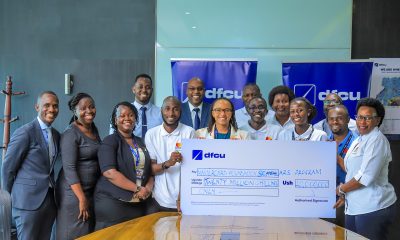
 General1 week ago
General1 week ago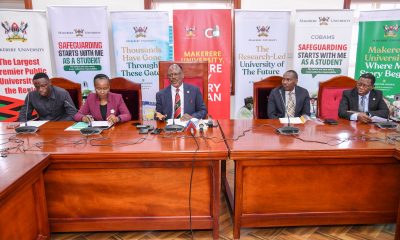
 General2 days ago
General2 days ago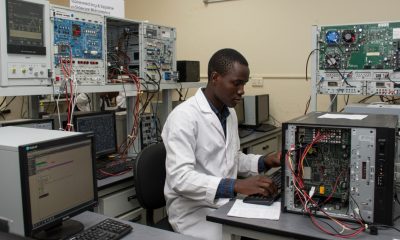
 Computing & IS3 days ago
Computing & IS3 days ago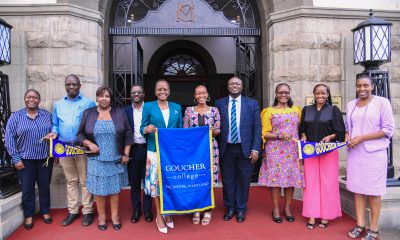
 General6 days ago
General6 days ago
